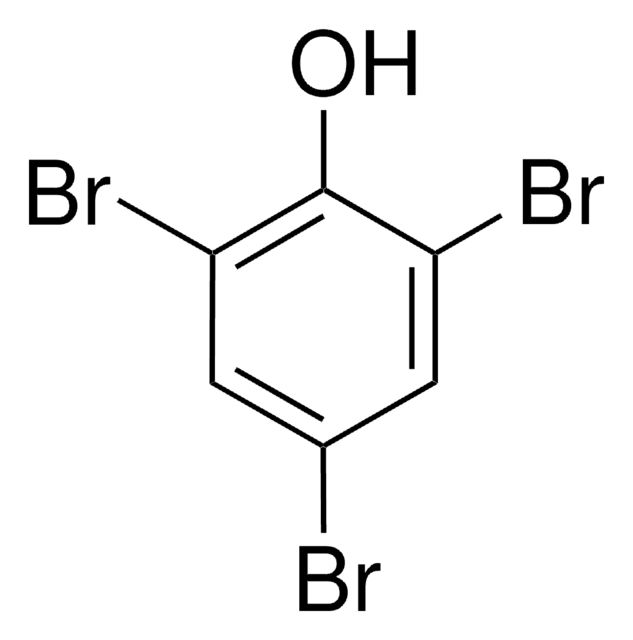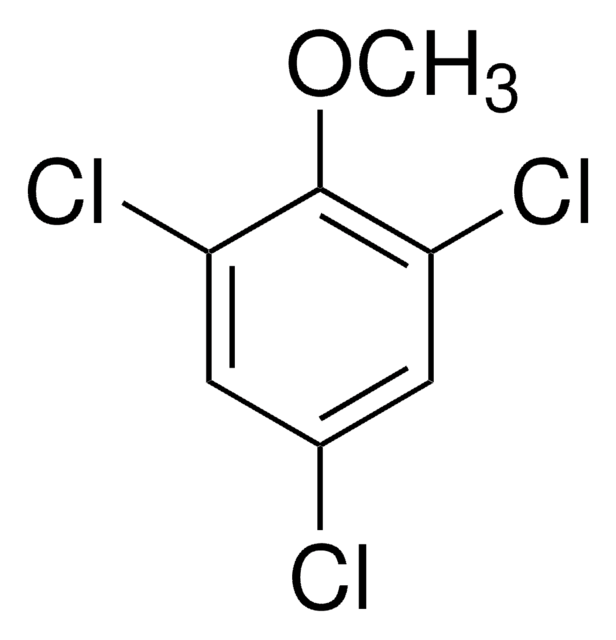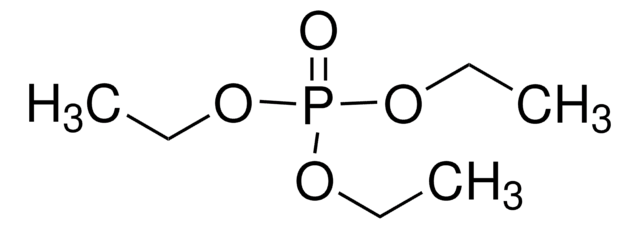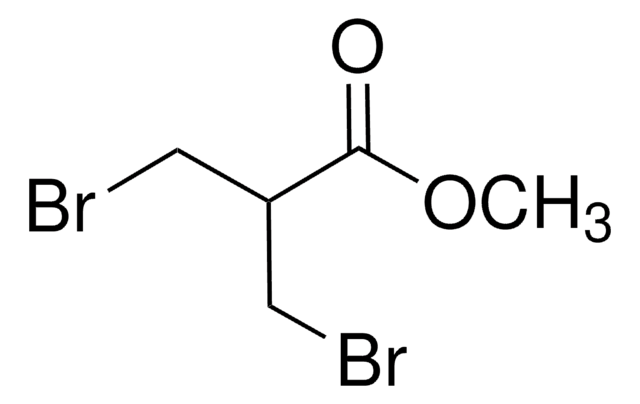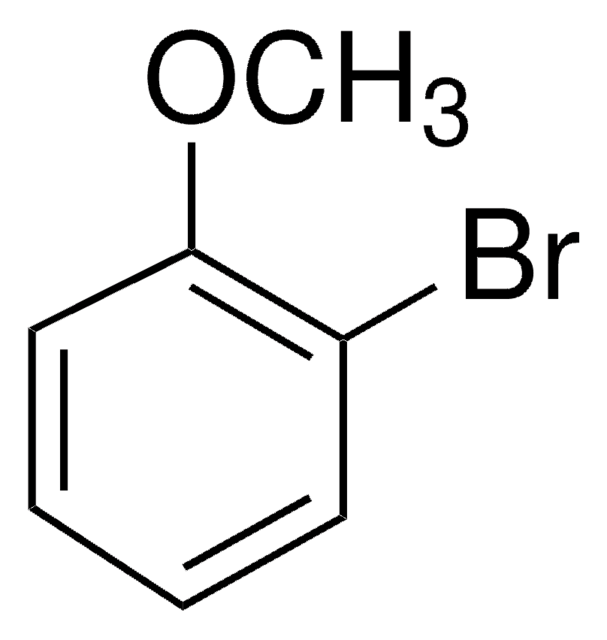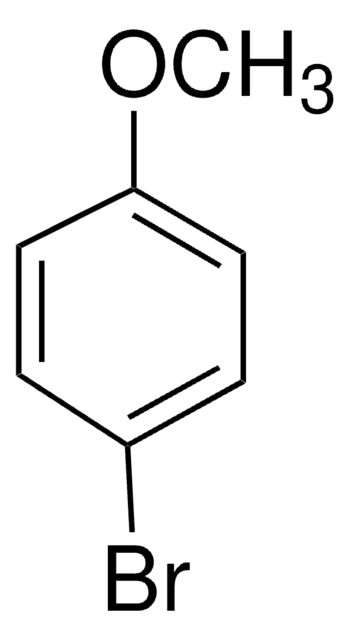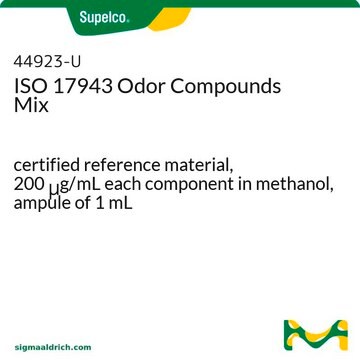398780
2,4,6-Tribromoanisole
99%
Synonym(s):
2,4,6-Tribromo-1-methoxybenzene
Sign Into View Organizational & Contract Pricing
All Photos(1)
About This Item
Linear Formula:
Br3C6H2OCH3
CAS Number:
Molecular Weight:
344.83
Beilstein:
2210361
MDL number:
UNSPSC Code:
12352100
PubChem Substance ID:
NACRES:
NA.22
Recommended Products
Assay
99%
form
solid
bp
297-299 °C (lit.)
mp
84-88 °C (lit.)
functional group
bromo
SMILES string
COc1c(Br)cc(Br)cc1Br
InChI
1S/C7H5Br3O/c1-11-7-5(9)2-4(8)3-6(7)10/h2-3H,1H3
InChI key
YXTRCOAFNXQTKL-UHFFFAOYSA-N
Looking for similar products? Visit Product Comparison Guide
General description
2,4,6-Tribromoanisole has been reported to cause cork taint in wines and vortex assisted liquid-liquid microextraction (VALLME) method for its determination has been developed. It is a musty-smelling metabolite of fungicide 2,4,6-tribromophenol. Determination of 2,4,6-trichloroanisole in wine at low ngL-1 levels by gas chromatography-high-resolution mass spectrometry (GC-HRMS) method has been repoted.
Application
2,4,6-Tribromoanisole is suitable reagent used for the determination of 2,4,6-tribromoanisole in packaging materials and food by an analytical method based on multipleion detection GC-MS.
Hazard Statements
Precautionary Statements
Hazard Classifications
Aquatic Chronic 4
Storage Class Code
11 - Combustible Solids
WGK
WGK 3
Flash Point(F)
Not applicable
Flash Point(C)
Not applicable
Personal Protective Equipment
dust mask type N95 (US), Eyeshields, Gloves
Choose from one of the most recent versions:
Already Own This Product?
Find documentation for the products that you have recently purchased in the Document Library.
Customers Also Viewed
2, 4, 6-Tribromoanisole: a potential cause of mustiness in packaged food.
Whitfield FB, et al.
Journal of Agricultural and Food Chemistry, 45(3), 889-893 (1997)
C Pizarro et al.
Talanta, 128, 1-8 (2014-07-26)
A vortex assisted liquid-liquid microextraction (VALLME) method was developed and optimised for the determination of the main compounds that can cause cork taint in wines, 2,4,6-trichloroanisole (TCA), 2,3,4,6-tetrachloroanisole (TeCA), 2,4,6-tribromoanisole (TBA) and pentachloroanisole (PCA); and their corresponding halophenolic precursors. Target
S Jönsson et al.
Journal of chromatography. A, 1111(1), 71-75 (2006-02-09)
A gas chromatography-high-resolution mass spectrometry (GC-HRMS) method using solid-phase microextraction (SPME) for the determination of 2,4,6-trichloroanisole (TCA) and 2,4,6-tribromoanisole (TBA) in wine at low ng L(-1) levels was developed. A robust SPME method was developed by optimizing several different parameters
Navideh Sadoughi et al.
Journal of agricultural and food chemistry, 63(11), 2877-2885 (2015-02-24)
An optimized method for the quantitation of volatile compounds responsible for off-aromas, such as earthy odors, found in wine and grapes was developed. The method involved a fast and simple headspace solid-phase microextraction-gas chromatography-mass spectrometry (HS-SPME-GC-MS) for simultaneous determination of
Our team of scientists has experience in all areas of research including Life Science, Material Science, Chemical Synthesis, Chromatography, Analytical and many others.
Contact Technical Service